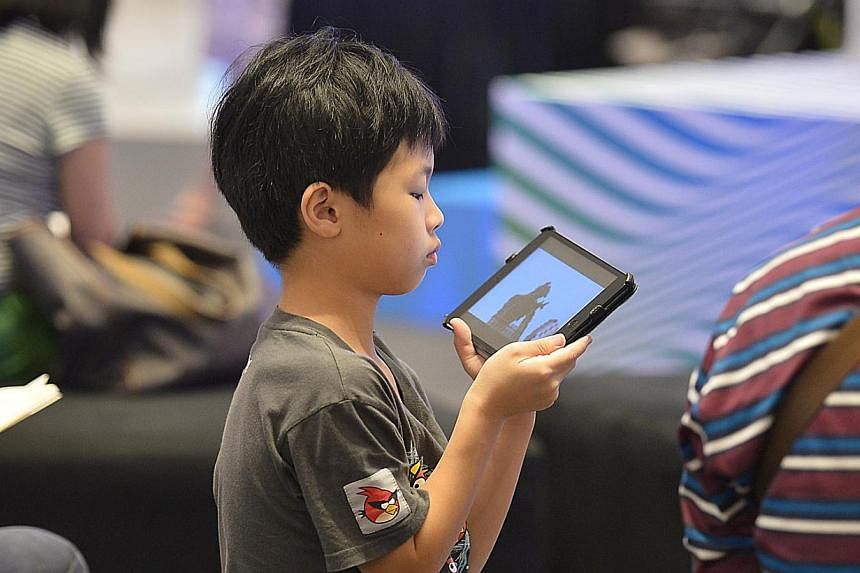Since my wife and I took away our daughter's Apple iPad, she has become a much happier child.
This broad statement will probably infuriate certain parents, especially those who use digital devices as surrogate babysitters. And I would know, because I almost became one of them.
My daughter would wake up in the morning and demand the tablet to watch YouTube videos. She would also ask for it at mealtimes and would want to watch several quick videos before she goes to bed.
If she was frustrated, crying or needed attention, the appearance of a smartphone or tablet would calm her down. But take it away and you would incur the wrath of a three-year-old.
My wife and I were not happy that her behaviour was so tied to mobile devices, but there seemed to be no stopping her dependency on them.
Worse still, as a tech journalist, I had read numerous reports on the downside of the impact of electronic gadgets on children.
Researchers had sounded the alarm on possible consequences - everything from bad eyesight and short attention spans, to behavioural issues and decreased muscular strength - as children are tapping the screens and not building the muscles for writing and drawing.
I had told myself early on that I should be more aware of using electronic devices as surrogates, and limit their use when I was with my child. But I completely underestimated how quickly she would take to them.
It was my fault, because I had come to rely on them in my work.
When I was planning her activities during the long flight to the United States last month, I consciously packed two tablets and extra battery packs for the flight, expecting that they would serve as a distraction for her. Mindful of how annoying it can be to have a bawling child in flight, I did not want it to be my child.
That same journey also made me realise that she could be weaned off the tablet and the smartphone.
The lack of onboard Wi-Fi meant she could not enjoy her library of YouTube videos. The movies I had taken along were not enough to hold her attention and once we left Narita airport, she craved something new.
The two weeks we spent travelling were filled with other activities, including shopping, eating and Disneyland, so she barely felt the absence of her "babysitters".
When she did ask for them, the lack of Wi-Fi outside of the hotel rooms meant that tablets and smartphones were no longer reliable sources of entertainment.
Gradually, she stopped asking for them. When we got home, my wife and I kept our tablets away from her. We also minimised the time we spent on our own smartphones, so they were no longer a constant in our everyday lives.
Untethered, she went back to playing with her toys, reading her books and singing with us.
Her mornings are now spent playing and interacting with us. In the evenings, she talks about what she did all day.
Of course, it is not just about separating her from the devices. We give her more attention and she reciprocates, because she is no longer distracted by them.
While we allow her occasional access to digital devices, she no longer demands them as a matter of course and is more than happy to put the tablet down when we talk to her.
And now when she does come up to ask me to show her Taylor Swift's Blank Space, Alicia Keys' Girl On Fire or any music video from Frozen, I happily let her have my smartphone.
I see it as her way of making sure that I spend less time on it.


